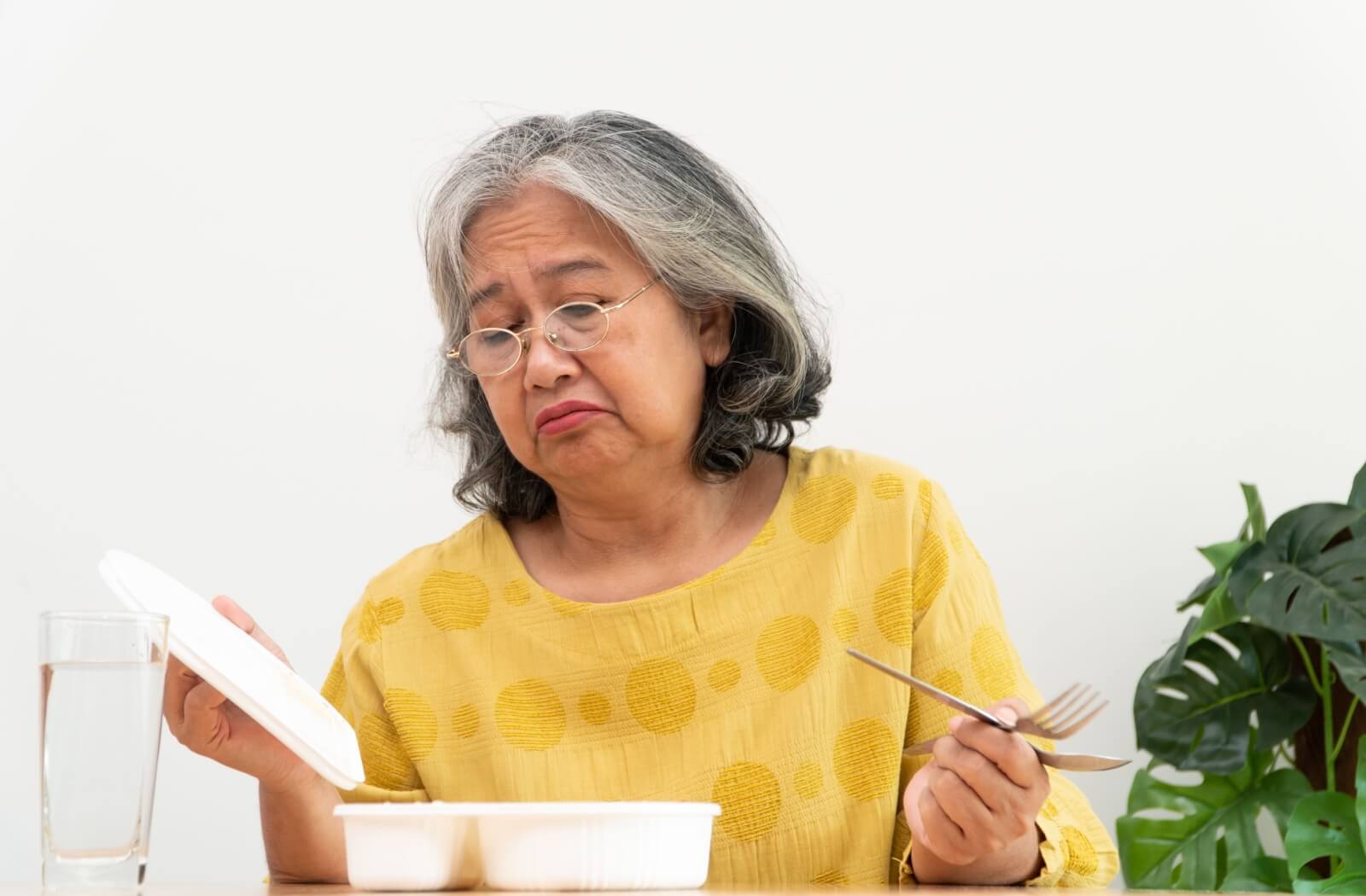As we age, our bodies go through many changes that can affect our appetite. It is not uncommon for seniors to experience a loss of appetite, but unfortunately, this can lead to malnutrition and other health issues if left untreated. Physical and emotional factors can contribute to a loss of appetite in seniors. In some cases, side effects of medication can cause a loss of appetite.
Physical Factors
As we get older, our metabolism naturally slow down and our bodies require less calories to function. We tend to eat less and get full faster. Over time, seniors may notice that they don’t feel as hungry as they used to and may not have the same appetite as when they were younger.
A decrease in sense of taste and smell may also cause a loss of appetite. As we age, our senses tend to decline, which can result in food tasting less flavorful and appealing. This can make eating less enjoyable and ultimately lead to a decrease in appetite.
In addition, there are health conditions that can affect appetite such as dental issues and chronic pain. Gastrointestinal problems like acid reflux and inflammatory bowel disease also affect appetite.
Emotional Factors
Emotional factors can also play a significant role in causing a loss of appetite for seniors. They may experience major life changes, such as retirement, loss of loved ones, or health issues. These changes can lead to feelings of loneliness, depression, or anxiety which can affect our desire to eat.
Moreover, elderly individuals who live alone may find it less appealing to cook and eat meals for one, leading to a decrease in appetite.
Medication Side Effects
It is common for seniors to be on multiple medications for various health conditions. Unfortunately, some medications can have side effects that include loss of appetite. This can be due to the medication altering taste buds, reducing saliva production, or causing nausea. If a senior is experiencing a loss of appetite due to medication side effects, it is important to speak with their doctor to explore alternative options.
Tips for Improving Appetite
If you or a loved one is experiencing a loss of appetite, it’s important to take proactive steps to improve eating habits and ensure proper nutrition. Here are several effective strategies that can help:
- Try smaller, more frequent meals: Instead of sticking to the traditional 3 large meals a day, consider having smaller meals or snacks throughout the day. This can make eating feel less overwhelming and provide a steady source of energy.
- Incorporate high-protein and nutrient-dense foods: Focus on adding foods that are rich in protein and nutrients to your meals. Options like lean meats, eggs, dairy products, legumes, nuts, and seeds can offer essential nutrients while also helping increase appetite.
- Utilize herbs and spices in cooking: Enhance the flavor of your meals by experimenting with various herbs and spices. Not only do they make food more flavorful, but they can also stimulate the palate and make meals more enjoyable.
- Encourage social eating: Sharing a meal with friends or family can create a more inviting atmosphere and make mealtime more enjoyable. Consider inviting loved ones over for dinner or joining them for meals to foster social connections and enhance appetite.
- Engage in physical activity: Light exercise or physical activity can naturally stimulate appetite. Activities such as walking, yoga, or even stretching can help boost energy levels and encourage a desire to eat.
If appetite issues persist, consider incorporating meal replacement shakes or nutritional supplements into your diet. These can help ensure that essential nutrients are met, especially if regular meals are challenging. However, you should consult a healthcare professional before using meal replacements long-term.
Seeking Medical Advice
If a loss of appetite persists for an extended period, it’s important to seek medical advice. This can help identify any underlying health issues that may be causing the decrease in appetite.
A doctor may also be able to provide additional resources or recommendations on how to improve and maintain a healthy appetite. Proper nutrition is essential for maintaining overall health and well-being, especially for seniors, so don’t hesitate to reach out for medical advice.
Nourishing Senior for Enhanced Well-Being at All American Assisted Living
Maintaining a healthy appetite is crucial for seniors to make sure they receive the necessary nutrients and energy for daily activities and overall health.
At All American Assisted Living at Raynham, we offer a variety of delicious and nutritious meal options tailored to individual needs. Our team also works closely with residents to monitor their appetite and make any necessary adjustments to their diet plan.
Contact us today to learn more about our senior living community and see how we can help maintain your loved one’s health through good nutrition.





